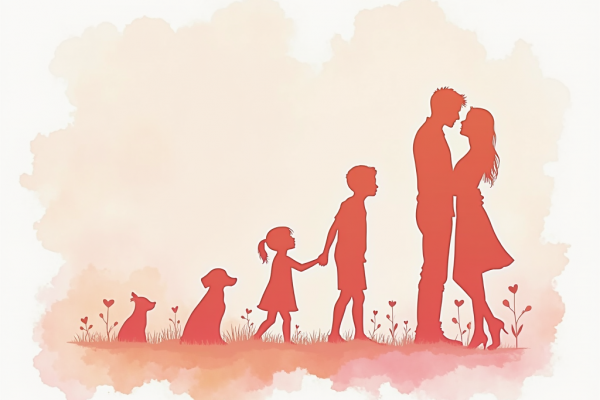
Why Do Guys Make Plans Then Ghost? Men Reveal the Real Reasons Behind Disappearing Acts
Reading time: 12 minutes
Table of Contents
- Understanding the Ghosting Phenomenon
- The Psychology Behind Making Plans and Disappearing
- Top Reasons Why Men Make Plans Then Ghost
- Real-Life Stories: Men Who Ghosted Explain Why
- The Female Perspective: Impact and Emotional Aftermath
- How to Spot the Warning Signs Before Being Ghosted
- Navigating the Aftermath: Healthy Responses to Ghosting
- Building Better Communication: Breaking the Ghosting Cycle
- Your Emotional Protection Plan: Moving Forward With Confidence
- Frequently Asked Questions
Understanding the Ghosting Phenomenon
You’ve been texting for days, maybe weeks. The conversation flows effortlessly, jokes land perfectly, and there seems to be genuine interest. Then comes the exciting moment—he suggests meeting up. Plans are made, details confirmed, and you’re looking forward to finally connecting in person. But then… silence. Complete radio silence. No explanation, no cancellation, just a sudden disappearance as if he’s evaporated into the digital ether.
Welcome to the puzzling world of modern dating, where ghosting after making plans has become an all-too-common experience. This particular brand of ghosting—the “plan-and-disappear” maneuver—can be especially confusing and hurtful because it involves an explicit commitment that’s subsequently abandoned.
Recent data reveals just how prevalent this behavior has become in our digital dating landscape:
Ghosting by the Numbers
Source: Journal of Social and Personal Relationships survey, 2021
According to dating psychologist Dr. Marisa T. Cohen, “Ghosting after making concrete plans represents a particularly troubling form of rejection because it violates not just implicit social contracts but explicit agreements. This makes it harder for the recipient to rationalize or dismiss.”
The Psychology Behind Making Plans and Disappearing
To understand why someone would make plans only to vanish, we need to explore the psychological mechanisms at play. What drives seemingly interested potential partners to commit to plans they have no intention of keeping?
Avoidance as a Coping Strategy
When it comes to emotional discomfort, humans are hardwired to seek the path of least resistance. Clinical psychologist Dr. James Porter explains: “Conflict avoidance is a primitive self-protection mechanism. When faced with the discomfort of disappointing someone or having a potentially awkward conversation, many people—particularly those with insecure attachment styles—will choose avoidance over confrontation.”
This avoidance tendency is especially pronounced in dating scenarios where emotional investment may still be developing. The short-term relief of avoiding an uncomfortable conversation often outweighs consideration of the long-term impact on the other person.
The Commitment-Reality Gap
There’s often a significant difference between how we feel when making plans and how we feel as those plans approach. Relationship therapist Hannah Brooks calls this the “commitment-reality gap.”
“In the moment of making plans, especially in early dating stages, there’s often genuine enthusiasm and interest,” Brooks explains. “However, as the actual meeting approaches, anxiety, second thoughts, or competing priorities can emerge. For individuals who struggle with direct communication, ghosting becomes the default response to this internal conflict.”
This explains why many men report initially being excited about plans they later abandoned—their enthusiasm wasn’t necessarily feigned, but rather overwhelmed by subsequent doubts or anxieties.
Top Reasons Why Men Make Plans Then Ghost
Through interviews with men who admit to having ghosted after making plans, several key patterns emerge. Understanding these motivations doesn’t excuse the behavior, but it does provide valuable insight into why it happens.
| Reason | Frequency | Psychological Driver | Common Signs | Likely Age Group |
|---|---|---|---|---|
| Fear of rejection/disappointment | Very High | Insecurity, anxiety | Hesitation about details, seeking reassurance | All ages |
| Better option emerged | High | FOMO, commitment issues | Vague planning, delayed responses | 18-35 |
| Overwhelmed by expectations | Medium | Performance anxiety | Over-promising, seeking validation | 25-40 |
| Lost interest but avoided conflict | Very High | Conflict avoidance | Decreasing message frequency, shorter responses | All ages |
| Personal crisis intervened | Low | External stressors | Sudden change in communication style | All ages |
1. Fear of Rejection or Disappointment
“I was worried she wouldn’t look like her photos,” admits Jason, 32. “We had this amazing connection online, but I built up this fear that in person we wouldn’t click. Instead of going through with it and potentially facing that awkwardness, I just stopped responding. I know it was cowardly.”
Fear works in multiple directions—men frequently report concerns about either being rejected or disappointing their date. Ironically, this fear leads to behaviors that preemptively reject the other person.
2. The Emergence of “Better” Options
In today’s dating app culture, there’s always the possibility of another match just a swipe away. Alex, 27, explains: “I had made plans with someone from Bumble, but then an ex I was still hung up on texted me wanting to meet the same night. Instead of being honest with my Bumble match, I just ghosted. I feel bad about it now, but in the moment, I took what seemed like the easy way out.”
Dating coach Evan Katz notes that this reflects a concerning trend: “The illusion of endless options has created a paradox of choice that makes commitment—even to simple plans—more difficult for some. When everything feels replaceable, people treat connections as disposable.”
3. Overwhelmed by Expectations
Sometimes the pressure to perform—to be charming, interesting, and attractive—becomes overwhelming. Men who struggle with social anxiety or perfectionism may find the anticipated stress of a date too much to handle.
“I built up this first date so much in my head that I convinced myself I’d disappoint her,” says Terrence, 35. “We’d had these amazing conversations over text, and I thought there’s no way I could live up to that in person. I froze up and ghosted rather than risk failing.”
Real-Life Stories: Men Who Ghosted Explain Why
Behind the statistics are real people and complex situations. These first-hand accounts reveal the thinking processes that lead to ghosting after making plans.
Case Study 1: Michael, 29 – The Overwhelmed People-Pleaser
“I matched with Sara on Hinge, and we hit it off immediately. The conversation was amazing, and I genuinely enjoyed talking to her. When she hinted at wanting to meet up, I enthusiastically suggested dinner that weekend. But as the day approached, I realized I was overcommitted—I had family obligations I’d forgotten about, a work deadline looming, and was feeling rundown.
The right thing would have been to reschedule, but I was embarrassed about my poor planning. Every hour that passed made it more awkward to reach out. I kept thinking I’d message her ‘soon’ to explain, but soon became never. The shame of my handling of the situation made it easier to just disappear than to face it. I still feel guilty about it months later.”
Case Study 2: Devon, 33 – The Commitment-Phobe
“After my divorce, I jumped back into dating before I was ready. With Rachel, we had an instant connection and great chemistry through text. I suggested a weekend trip to a nearby wine country—something I was genuinely excited about when I proposed it.
But as we started figuring out specifics, I had this overwhelming panic attack. The trip suddenly felt like this huge commitment, and all my fears about getting hurt again came rushing back. Instead of explaining that I was moving too fast for my own comfort level, I just stopped responding to her messages.
A therapist later helped me understand I was protecting myself from vulnerability in the most dysfunctional way possible. I’ve since reached out with an apology, though of course, the damage was done.”
The Female Perspective: Impact and Emotional Aftermath
While understanding why men ghost after making plans provides context, it’s equally important to recognize the impact this behavior has on those on the receiving end.
Research from the Journal of Social and Personal Relationships indicates that ghosting can cause significant emotional distress, often more severe than other forms of rejection because of its ambiguity. Being ghosted after concrete plans have been made amplifies these effects.
Elena, 31, describes her experience: “When Jake ghosted after we’d made dinner reservations, my first reaction was concern—I thought something might have happened to him. That quickly turned to confusion, then embarrassment, and finally anger. The worst part was the self-doubt it created. For weeks I analyzed our conversations looking for what I might have said wrong.”
Psychologist Dr. Ramani Durvasula explains that this reaction is common: “Ghosting transfers emotional responsibility to the person being ghosted. Without closure, people naturally turn inward, questioning their own worth and attractiveness. It’s a particularly insidious form of rejection because it leaves the recipient to write the ending to the story—and humans typically create worst-case narratives when left to fill in blanks.”
How to Spot the Warning Signs Before Being Ghosted
While no method is foolproof, there are indicators that someone might be likely to ghost after making plans. Recognizing these patterns can help you protect yourself emotionally.
Communication Red Flags
Pay attention to these subtle warnings in communication patterns:
- Decreased message frequency as the planned date approaches
- Vagueness about details when trying to confirm specifics
- Delayed responses that grow longer with each exchange
- Deflecting questions about logistics with jokes or topic changes
- Overenthusiasm that seems disproportionate to your connection level
Dating coach Camille Virginia notes: “Communication consistency is the single best predictor of follow-through. If someone’s message frequency starts declining as your plans approach, that’s often a sign they’re creating emotional distance before disappearing.”
Behavioral Patterns That Signal Risk
Beyond communication, certain behaviors may indicate a higher likelihood of ghosting:
- Reluctance to solidify plans until the last minute
- History of cancellations or rescheduling
- Unwillingness to connect on additional platforms (like moving from an app to texting)
- Avoiding video chats before meeting in person
- Inconsistency between stated intentions and actions
“Watch how someone treats minor commitments,” advises relationship therapist Jordan Gray. “If they’re flaky about small things like responding to messages or nailing down a time to meet, that pattern typically extends to larger commitments as well.”
Navigating the Aftermath: Healthy Responses to Ghosting
Being ghosted after making plans can trigger a range of painful emotions. Here’s how to process this experience in ways that protect your emotional wellbeing and self-esteem.
Immediate Coping Strategies
When you realize you’ve been ghosted after making plans, try these approaches:
- Allow yourself to feel disappointed without spiraling into self-blame
- Reach out once with a straightforward message like: “I noticed we had plans for tonight and haven’t heard from you. Hope everything’s okay. Let me know if you’d like to reschedule.”
- Set a mental deadline for how long you’ll wait for a response before moving on
- Share your experience with a trusted friend who can provide perspective
- Redirect your energy toward self-care activities that make you feel valued
Psychologist Dr. Joy Harden Bradford emphasizes: “The most important thing is to resist internalizing someone else’s poor communication as a reflection of your worth. Their behavior says everything about their character and nothing about your value.”
Long-Term Resilience Building
To strengthen your emotional resilience against ghosting and similar experiences:
- Develop multiple avenues for validation beyond romantic interest
- Practice maintaining appropriate expectations in early dating stages
- Refine your ability to recognize consistent, reliable communicators
- Cultivate self-compassion when dating disappointments occur
“Resilience isn’t about not feeling hurt,” explains therapist Nedra Glover Tawwab. “It’s about having effective tools to process that hurt without letting it define your sense of self or sour your willingness to remain open to connection.”
Building Better Communication: Breaking the Ghosting Cycle
Creating a dating culture with less ghosting requires effort from all participants. Here’s how both potential ghosters and ghostees can contribute to healthier dating communication.
For Those Tempted to Ghost After Making Plans
If you find yourself wanting to disappear rather than follow through on plans:
- Recognize that brief discomfort is better than causing significant pain
- Prepare a simple template for respectfully canceling, such as: “I’ve been looking forward to our plans, but I need to be honest that I’m not in the right headspace to meet up right now. I apologize for the late notice and wish you well.”
- Set boundaries around planning that help you avoid overcommitting
- Consider seeking help if conflict avoidance is a pattern in multiple areas of your life
Relationship expert Esther Perel notes: “The ability to disappoint others consciously and compassionately is a crucial skill for healthy relationships. Learning to say difficult truths kindly is far more respectful than saying nothing at all.”
For Those Navigating the Dating Landscape
To protect yourself while maintaining an open heart:
- Consider a video chat before making substantial in-person plans
- Maintain moderate expectations until consistent reliability has been demonstrated
- Be clear about your communication preferences early on
- Model the directness you hope to receive in your own communications
“Creating a culture of directness starts with practicing it ourselves,” says dating coach Matthew Hussey. “The more we normalize honest, kind communication even when it’s uncomfortable, the more we encourage it from others.”
Your Emotional Protection Plan: Moving Forward With Confidence
While ghosting may be a reality in modern dating, you don’t have to let fear of it diminish your openness to connection. Here’s your practical roadmap for maintaining emotional wellbeing while navigating the sometimes turbulent waters of dating.
Your 5-Step Ghosting Resilience Plan
- Develop a “plan B” habit — When making date plans, have an alternate activity in mind that you’ll enjoy solo or with friends if the date falls through. This creates a psychological safety net.
- Practice the 24-hour rule — When ghosted, give yourself 24 hours before making any conclusions. This buffer helps prevent reactive behaviors and gives the other person time if something legitimate came up.
- Implement the “two-strike” approach — Everyone deserves one chance to explain a miscommunication, but pattern recognition is key to self-protection. Two instances of unexplained disappearing acts is a clear pattern.
- Maintain a connection inventory — Regularly nurture relationships with friends, family, and yourself that provide consistent validation and support, regardless of your dating success.
- Create a rejection resilience mantra — Develop a personal phrase that helps you contextualize ghosting, such as: “Someone’s inability to communicate reflects their limitations, not my worthiness.”
Remember that while you can’t control others’ behavior, you absolutely can control how you respond to it. Every dating disappointment provides valuable information—about both others and yourself—that can guide you toward more fulfilling connections.
The greatest paradox of dating resilience is that maintaining appropriate emotional boundaries actually enables more authentic vulnerability. When you know you can handle disappointment gracefully, you’re freed to engage more openly in the risk that genuine connection requires.
What will you do differently in your next dating interaction to balance openness with emotional self-protection? Consider how implementing even one strategy from this roadmap might change your experience—regardless of whether someone else chooses to ghost or engage.
Frequently Asked Questions
Should I call out someone who ghosted me after making plans?
There’s no one-size-fits-all answer, but consider your motivations first. If you’re hoping to understand what happened or get closure, a brief, non-accusatory message might be appropriate. Something like: “I noticed we had plans that didn’t happen and haven’t heard from you. I would have appreciated a heads-up if you needed to cancel. Hope all is well.” However, if you’re feeling angry and likely to send something you’ll regret, it’s better to process those feelings elsewhere. Remember that true closure comes from within, not from the person who ghosted you.
How long should I wait before concluding I’ve been ghosted versus just experiencing a communication delay?
Context matters here. If you had specific plans and the person doesn’t show up or contact you on the day of those plans, it’s reasonable to conclude something is amiss. Otherwise, 2-3 days of unexplained silence after regular communication and planned meet-up discussions typically indicates ghosting rather than a busy schedule. One approach is to send a single, light follow-up message. If there’s no response within 24-48 hours after that, it’s generally best to move on while remaining open to the possibility they may eventually explain their absence.
Is ghosting ever justified after making concrete plans?
While ghosting typically reflects poor communication skills, there are rare circumstances where someone might feel unsafe directly communicating. If someone has shown concerning behaviors like boundary violations, possessiveness, or other red flags that suggest they might react poorly to rejection, ghosting may feel like the safest option. Additionally, someone experiencing a genuine personal crisis or health emergency might not have the capacity to explain their absence immediately. That said, in the vast majority of cases—particularly when plans have been made—taking a moment to send even a brief cancellation message is the more compassionate choice.

Article reviewed by Connor O’Sullivan, Men’s Relationship Advisor | Emotional Awareness for Deeper Intimacy, on May 2, 2025






